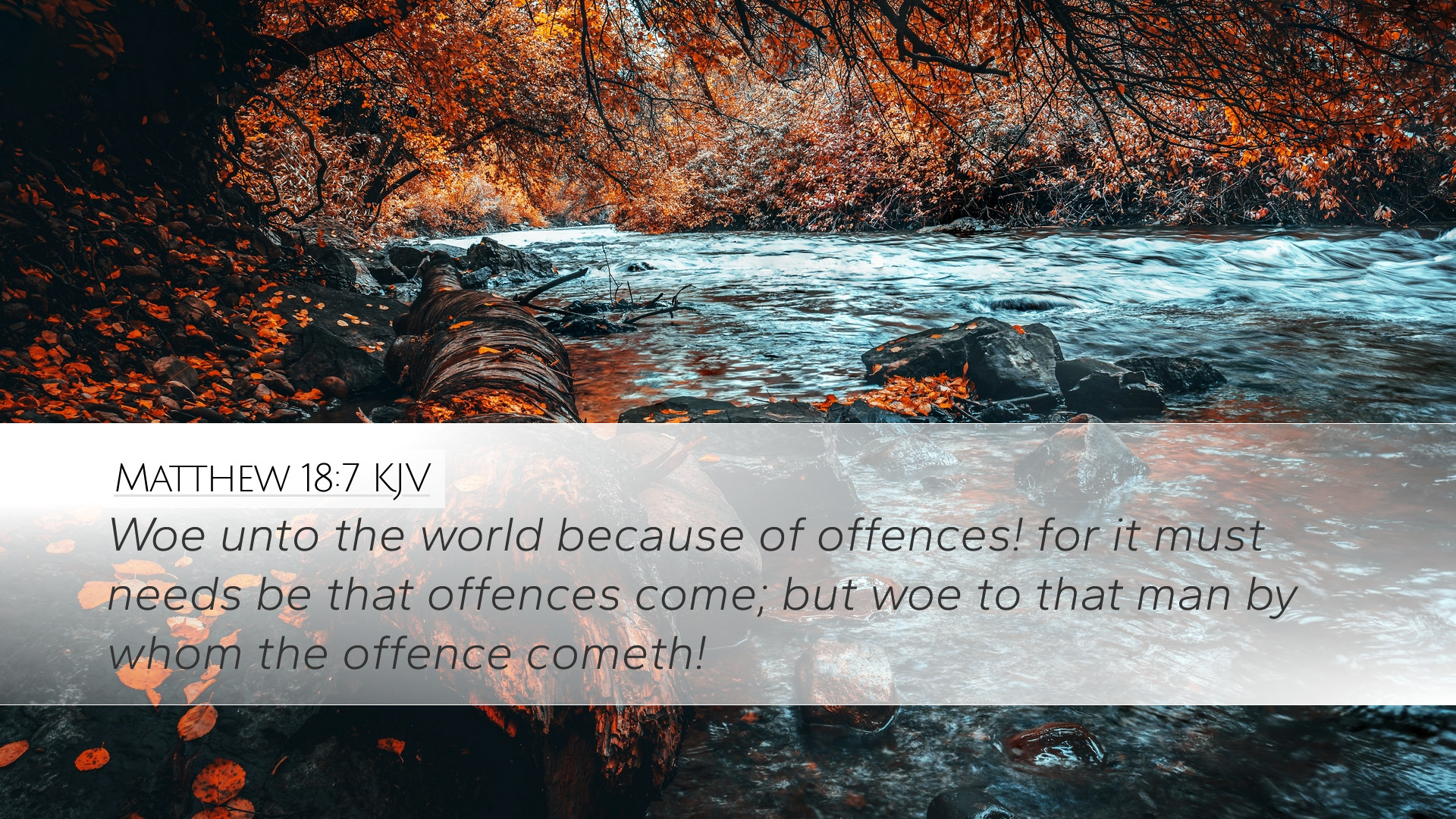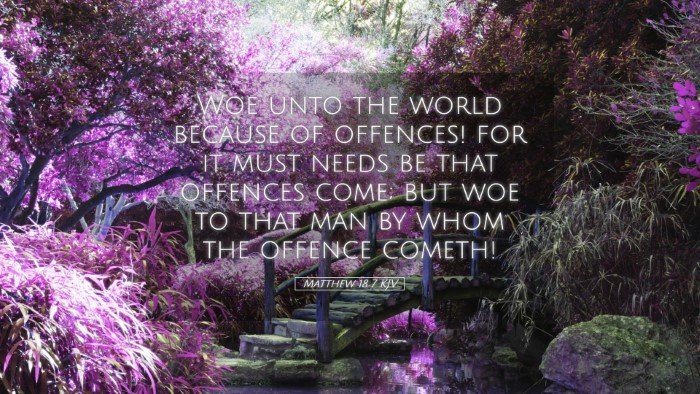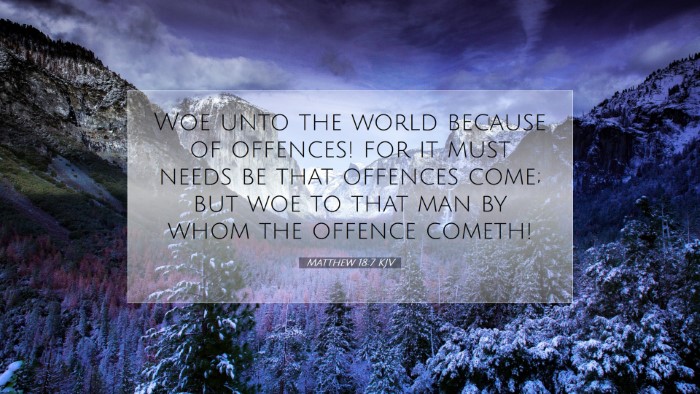Commentary on Matthew 18:7
Matthew 18:7 states, "Woe unto the world because of offenses! For it must needs be that offenses come; but woe to that man by whom the offense cometh!" This verse invites profound reflection on the nature of sin, temptation, and accountability. In this commentary, we will explore insights from Matthew Henry, Albert Barnes, and Adam Clarke to deepen our understanding of this passage.
Understanding Offenses
Matthew Henry emphasizes that the term "offenses" refers to stumbling blocks or temptations that lead others into sin. He notes that while offenses are inevitable in a fallen world, there is a serious danger associated with being the source of another's downfall.
Henry points out that the Lord uses a strong admonition to warn individuals about the grave consequences of leading others astray. He writes, “The world must be prepared for struggles, and those who are instruments of temptation face a dire warning.”
The Inevitable Nature of Offenses
Albert Barnes reflects on the phrase "it must needs be that offenses come." He interprets this as an acknowledgment of the fallen human condition; sin and temptation are inherent in a world that diverged from God's perfect will. However, he stresses that this inevitability does not excuse those who choose to commit offenses against their brothers and sisters.
Barnes suggests that believers are warned that while they may encounter temptation, they should actively resist it. He highlights that responsibility lies with individuals not only to withstand offenses but also to avoid being the cause of them.
The Responsibility of the Offender
Adam Clarke presents a deep theological insight regarding the phrase "woe to that man by whom the offense cometh." Clarke underscores that Jesus directly condemns those who lead others into sin. This can be understood not only in the context of intentional actions but also in behaviors that, while seemingly minor, can have significant impacts on others’ spiritual wellbeing.
Clarke elaborates that the usage of "woe" serves as a warning of impending judgment upon those who engage in such behavior. He adds, “It emphasizes God’s moral order, where actions leading others to sin will ultimately lead to self-damnation.”
The Heart of the Matter: Sin and Its Consequences
In analyzing this verse, all three commentators converge on the idea that while offenses may be inevitable, the focus should be on personal accountability. Henry, Barnes, and Clarke all stress the importance of individual conduct and the grave implications of leading others into sin.
- Matthew Henry: “Offenses arise from human weaknesses but caution must be exercised.”
- Albert Barnes: “We must not accept offenses as a natural occurrence, but rather strive to combat them.”
- Adam Clarke: “The danger is heightened for those who, while aware of sin, contribute to it.”
Practical Application for Believers
For pastors, students, theologians, and scholars, this verse holds significant importance in guiding moral and ethical living. The teachings outlined by the commentators lead to essential applications:
- Awareness of Influence: Believers should recognize the potential impact of their actions on others' spiritual journeys.
- Accountability: Individuals are called to take responsibility for their behaviors, ensuring they do not lead others into sin.
- Compassionate Living: The emphasis on the serious consequences of offenses encourages a lifestyle marked by grace and accountability.
Conclusion
In conclusion, Matthew 18:7 provides a sober reminder of the reality of sin in the world and the severe consequences of causing others to stumble. Drawing from the insights of Matthew Henry, Albert Barnes, and Adam Clarke, we are called to live with intention and mindfulness, guarding ourselves and those around us against the dangers of temptation. This verse challenges us not only to understand our accountability before God but also to actively foster an environment of spiritual care and edification.


